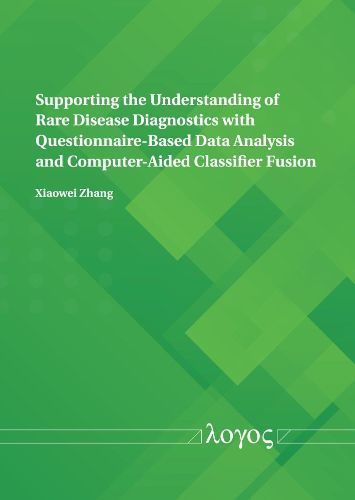Readings Newsletter
Become a Readings Member to make your shopping experience even easier.
Sign in or sign up for free!
You’re not far away from qualifying for FREE standard shipping within Australia
You’ve qualified for FREE standard shipping within Australia
The cart is loading…






Orphan diseases pose diagnostic challenges due to complex pathologies, limited epidemiological data, and clinical experience. The development of artificial intelligence and machine learning methods has the potential to enhance the accuracy of decision support systems, improving diagnosis outcomes for rare disease patients. This research aims to create a repository for characterizing rare diseases by collecting past experiences of diagnosed patients, reducing gaps in symptom interpretation. This interdisciplinary study, in collaboration with medical experts, has resulted in a computer-aided diagnostic support system utilizing statistical analysis and machine learning algorithms. The system incorporates disease profile aggregation, pattern recognition, and information comparison. An interactive data visualization platform has been established to promote intuitive understanding and evaluate system diagnosis with graphics-based disease feature comparison. It supports medical practitioners during the diagnostic process by presenting visually appealing information. The patient-oriented inquiry mechanism efficiently reduces unnecessary questions while providing a reliable diagnosis based on probability. By combining statistical learning with the visualization module, the system can discover disease-related symptom patterns, offering new means for diagnosing rare disorders. The supplementary diagnosis prediction mechanism can be applied effectively to analyze different groups in surveyswith closed-ended questions.
$9.00 standard shipping within Australia
FREE standard shipping within Australia for orders over $100.00
Express & International shipping calculated at checkout
Orphan diseases pose diagnostic challenges due to complex pathologies, limited epidemiological data, and clinical experience. The development of artificial intelligence and machine learning methods has the potential to enhance the accuracy of decision support systems, improving diagnosis outcomes for rare disease patients. This research aims to create a repository for characterizing rare diseases by collecting past experiences of diagnosed patients, reducing gaps in symptom interpretation. This interdisciplinary study, in collaboration with medical experts, has resulted in a computer-aided diagnostic support system utilizing statistical analysis and machine learning algorithms. The system incorporates disease profile aggregation, pattern recognition, and information comparison. An interactive data visualization platform has been established to promote intuitive understanding and evaluate system diagnosis with graphics-based disease feature comparison. It supports medical practitioners during the diagnostic process by presenting visually appealing information. The patient-oriented inquiry mechanism efficiently reduces unnecessary questions while providing a reliable diagnosis based on probability. By combining statistical learning with the visualization module, the system can discover disease-related symptom patterns, offering new means for diagnosing rare disorders. The supplementary diagnosis prediction mechanism can be applied effectively to analyze different groups in surveyswith closed-ended questions.